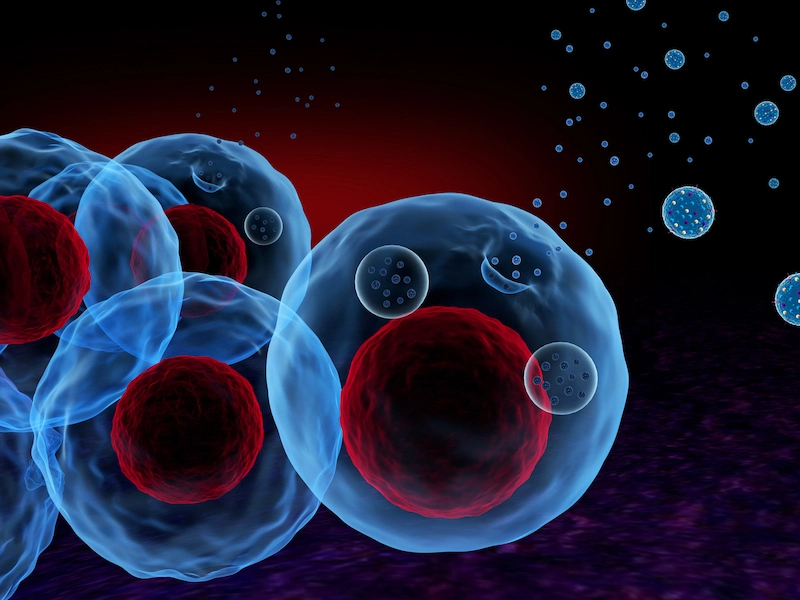In vitro fertilization (IVF) has revolutionized the journey to parenthood for many couples facing fertility challenges. Yet, the success of IVF largely depends on the quality of eggs and embryos, which can sometimes be compromised due to age, medical conditions, or other factors. Recently, exosome therapy has emerged as a promising advancement in reproductive medicine, offering new hope to improve egg and embryo quality. Exosomes—tiny vesicles secreted by cells—carry vital proteins, lipids, and genetic material that support cell communication and regeneration. When applied in the IVF process, exosome therapy can enhance the microenvironment of the ovaries and embryos, promoting healthier development and increasing the chances of a successful pregnancy. In this article, we explore what exosome therapy is, how it works in the context of IVF, and why it could be a game-changer for couples seeking better fertility outcomes.
What are Exosomes and How Do They Work in Reproductive Medicine?
Exosomes are tiny, naturally occurring vesicles released by cells that play a crucial role in intercellular communication. These microscopic particles carry a rich cargo of proteins, lipids, and genetic material such as RNA, which they transfer between cells to regulate various biological processes. In reproductive medicine, exosomes have gained significant attention because of their ability to influence cell health and regeneration. They help create a supportive environment in the ovaries and uterus by promoting cellular repair, reducing inflammation, and enhancing tissue function. This makes them especially valuable in fertility treatments like IVF, where improving the quality of eggs and embryos is essential. By delivering targeted molecular signals, exosomes can boost the developmental potential of reproductive cells, thereby increasing the likelihood of successful fertilization and healthy embryo growth.
Clinical Evidence: Impact on Ovarian Reserve and Embryo Development
Clinical studies investigating exosome therapy in reproductive medicine have shown promising results regarding its positive impact on ovarian reserve and embryo development. Research indicates that exosomes can enhance the microenvironment of the ovaries by promoting cellular regeneration and reducing oxidative stress, which are critical factors for maintaining healthy ovarian follicles and improving egg quality. Improved ovarian function often translates into a higher number of viable eggs retrieved during IVF cycles. Additionally, exosome treatment has been linked to better embryo development, with embryos demonstrating increased rates of cleavage and implantation potential. While still an emerging field, accumulating clinical evidence suggests that exosome therapy may offer a valuable adjunct to conventional IVF protocols, especially for patients with diminished ovarian reserve or repeated implantation failures, ultimately contributing to higher pregnancy success rates.
Who Can Benefit Most and Treatment Protocol Guidance
Exosome therapy offers particular benefits for individuals facing specific fertility challenges, such as those with diminished ovarian reserve, poor egg quality, or repeated IVF failures. Women of advanced maternal age or those with underlying conditions like endometriosis or ovarian aging may also find this treatment especially helpful in enhancing their reproductive potential. The therapy is typically integrated into the IVF protocol either before or during ovarian stimulation to optimize the ovarian environment and support embryo development. Treatment plans are personalized based on the patient’s medical history, ovarian function, and response to previous IVF cycles. Careful monitoring by a fertility specialist ensures that exosome therapy is applied safely and effectively, maximizing its potential benefits. While still relatively new, this approach is gaining traction as a promising adjunct to improve outcomes for patients who have struggled with conventional fertility treatments.


